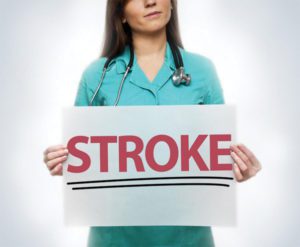 As a student, you may recall using what is known as a mnemonic to help you learn or remember important information. A mnemonic is a simple shortcut that helps us associate the information we want to remember with an image, a sentence, or a word. When it comes to stroke awareness, using F.A.S.T. and M.A.N.G.O. are two that just might make the difference between life and death, or save someone from permanent disability.
As a student, you may recall using what is known as a mnemonic to help you learn or remember important information. A mnemonic is a simple shortcut that helps us associate the information we want to remember with an image, a sentence, or a word. When it comes to stroke awareness, using F.A.S.T. and M.A.N.G.O. are two that just might make the difference between life and death, or save someone from permanent disability.
It is a known fact within the medical community that when it comes to stroke care, time is brain. The speed of receiving medical treatment is critical in lessening the potential impact of brain damage, leading the American Stroke Association to adopt the mnemonic appropriately known as F.A.S.T. First introduced in the United Kingdom in 1998, F.A.S.T. is used to help detect if a person is having a stroke and increase the responsiveness to seeking medical attention. “The central area of the brain will die within minutes,” says Dr. Hunter Brown, Board Certified Emergency Medicine Physician at Physicians Regional Healthcare System. “When patients are concerned about stroke, they need to think F.A.S.T. to recognize symptoms and seek medical treatment as quickly as possible.” This means:
(F) Face – Is there any facial asymmetry?
(A) Arm – Is one arm being weaker or more numb than the other? Does one arm drift downward when a person tries to raise both arms?
(S) Speech – Is there any difficulty with speech?
(T) Time – If so, it’s time to call 911
M.A.N.G.O. is a mnemonic that is currently being used at Physicians Regional and is used for screening symptoms of a Large Vessel Occlusion, a clot in one of the main arteries in the brain that is causing the stroke. If a patient presents with signs and symptoms of a stroke, the emergency room will alert staff overhead of a Stroke Alert. If that Stroke Alert’s neuro-imaging (CT) shows a suspected large vessel occlusion then a M.A.N.G.O. alert will be overhead. “This will signal team members involved in a neuro-interventional radiologic procedure to report to the neuro-interventional suite,”
says Diana Trupiano, RN, MSN, SCRN, Director of Stroke Services at Physicians Regional Healthcare System. “Additional IV sites are placed and advanced imaging is added. Neuro-Interventionalists are available 24/7 to view the scans allowing for a decision to be determined almost immediately after the CT scan.” M.A.N.G.O. identifies a patient experiencing:
(M) Motor Weakness
(A) Aphasia – Does the patient have the ability to understand or express speech? Can they name two objects (Expressive)? Can they follow two commands (Receptive)?
(N) Neglect – Is the patient unable to feel both sides at the same time, or unable to identify their own arm, or ignoring on one side?
(G) Gaze Preference – Does the patient have the inability to track an object or are they experiencing double vision?
(O) Optic Field – Is the patient’s optic field cut or are they experiencing any new blindness?
No matter which mnemonic is used in stroke care, time is of the essence when it comes to recognizing symptoms and seeking treatment. “Large vessel occlusions can be very debilitating if not caught and treated in a rapid amount of time,” says Trupiano. According to the National Institutes of Health, a one hour delay in treatment for a large vessel ischemic stroke equates to 3.6 years of normal brain aging, and 120 million neurons are lost each hour1. “The goal of our stroke team is to have every patient walk out with minimal deficits.”
Physicians Regional – Pine Ridge is a designated Comprehensive Stroke Center by the Florida Agency for Health Care Administration (AHCA). This designation is based on standards set by the AHCA that distinguishes hospitals with infrastructure, staff, and training to receive and treat patients with all types of strokes. In addition, the Pine Ridge and Collier Boulevard locations are designated Primary Stroke Centers and are a 3-time recipient of the American Heart Association/American Stroke Association’s Get With The Guidelines®-Stroke Gold Plus Quality Achievement Award. The award recognizes the hospital’s commitment to ensuring stroke patients receive the most appropriate treatment according to nationally recognized, research-based guidelines. Physicians
Regional emergency departments offer 24-hour care by board-certified physicians, and are located at Physicians Regional – Pine Ridge, 6101 Pine Ridge Road and Physicians Regional – Collier Blvd, 8300 Collier Boulevard.
1 https://www.ncbi.nlm.nih.gov/pubmed/16339467









